. . . the Protestant Editor of The New Treasury of Scripture Knowledge
Codex Alexandrinus, manuscript of the New Testament 088a – Romans 1 (5th century) [public domain / Wikimedia Commons]
***
Jerome Smith is an acquaintance: the brother of a good friend of mine, Martin Smith.
The New Treasury of Scripture Knowledge (1992) is a marvelous resource, though with an excessive evangelical Protestant bias in the notes. Despite that flaw, it is probably the single best source to cross-reference words and phrases in the Bible (better than standard concordances in many ways). Jerome also compiled
Nelson’s Cross-Reference Guide to the Bible (2007).
I ran across his mention on his website that he had “refuted” me and we struck up a conversation. It has become very long by now. The original exchanges can be found on his site under two of his posts (
one /
two). Here I have edited somewhat or length and subject matter and presented it in a more “user-friendly” back-and-forth format, as is my custom (so readers can better compare and contrast the two views). To see the original format, simply follow the two links above.
His words will be in blue.
* * * * *
Clearly, 2 Timothy 3:17 declares the opposite of what Cardinal Newman stated, for God’s Word says the Bible is given so that the man of God may be perfect, thoroughly furnished unto all good works. That is an express statement asserting the sufficiency of Scripture. Any church or denomination that denies this truth is a false cult. The evil influence of Cardinal Newman continues today, long after his death. That is why I am so strident in my criticism of people like him that teach falsehood.
[I have added material above in brackets and made corrections on 2-9-14 based on the input from Dave Armstrong’s comments which may be read below; I am thankful for his kindness in responding to this post almost immediately after it was posted!]
Hi Jerome,
Hope you are well! I saw your brother on New Year’s Day.
I noticed that one of your tags for this [article] is called, ” Dave Armstrong–Roman Catholic Apologist refuted”. That’s very interesting, because I don’t see any direct refutation of any of my arguments here. What you have written certainly doesn’t refute either myself or my arguments, since they are utterly ignored.
My thinking at the time when I thought up that “tag” is this. Cardinal Newman is mistaken in his assertions pertaining to what is taught and what is meant by what Paul wrote in 2 Timothy 3:16-17. Considering that you were greatly influenced by Cardinal Newman’s writings to convert to Roman Catholicism, and considering that you agree with his teaching about this verse, if I refuted him, I refuted you.
I’ve now written two entire books about sola Scriptura: 100 Biblical Arguments Against Sola Scriptura, and Pillars of Sola Scriptura: which critiqued the biblical arguments (what I was most interesetd in) of the prominent historical defenders of this doctrine, William Whitaker (1548-1595) and William Goode (1801-1868); also a portion of a third book, and chapters in several other books. I also have a very extensive web page on the topic (the one I’ve written more about than any other).
Most of that was available online for free, but you didn’t touch any of it, yet you claim that you have “refuted” me. I’d be happy to send you both of my books in e-book form (pdf, mobi, or ePub) via e-mail for free, if you like. You are also free and welcome to be the first Protestant to attempt to refute any part of either book. There’s always a first for everything . . .
Mr. Armstrong says several times in his books that he is thankful he is no longer a Protestant, because now he can go by the official teaching authority provided by his new-found faith in the Roman Catholic Church [without having to deal with conflicting positions of other authorities]. The problem I see with that is that such a stance directly violates what is taught by 1 Timothy 3:15-17.
Your readers are entitled to know (in fairness, and full disclosure) that I have also very often expressed public thankfulness and great appreciation for my Protestant background. For example, I have had a paper up almost six years, entitled, “Gratefulness For My Evangelical Protestant Background.” Sounds very hostile, doesn’t it?! In it I write things like the following:
I greatly admire and respect conservative, orthodox Protestantism. I once was an evangelical Protestant, and praise God for that experience, which was exceedingly beneficial to my spiritual advancement and theological education.
That in turn led me to considerable reflection upon the evangelical Protestant period of my life (1977-1990): how much it taught and formed me; the innumerable blessings and benefits I received, and how many wonderful Protestant teachers contributed to my Christian life, and even (indirectly) to my present Catholic apostolate of apologetics and evangelism. It is always good to ponder our experience and the paths through which God has led us, in His mercy and by His grace.
The paper is filled with effusive praise for this period of my life and the teachers I was blessed to have, and all that I learned.
Now imagine yourself writing that much praise about the Catholic Church (had you ever been part of it)! You couldn’t do it, because your view of my communion is infinitely lower than mine of Protestantism. I have great respect for it, but in your eyes I am barely still a Christian, if at all.
His [Cardinal Newman’s] teaching directly led to the falling away from the truth of the Bible [or at least from his original Protestantism] of a personal acquaintance of mine, Mr. Dave Armstrong, who has subsequently become a major apologist for the Roman Catholic Church.
[When I responded to this, the bracketed comment above wasn’t there. Jerome later added a note: “I have added material above in brackets and made corrections on 2-9-14 based on the input from Dave Armstrong’s comments.”]
I’ve done no such thing. I follow the Bible more so than ever, love and venerate it, teach from it all the time, accept all that it teaches. I’m even presently putting together a version of the New Testament, edited from six existing versions, called Victorian King James Version. I’ve just learned some new things that I was never taught as a Protestant, that are in there, too.
All I ask is that if you claim to have “refuted” me, that you do me the courtesy of actually interacting with arguments that I made. Jut presenting your view may be compelling and wonderful, but it’s not automatically a refutation of someone else. As it is, what you have provided above, I’ve seen a hundred times and have refuted most of it several times over in scores of papers and in ten or more books of my 43.
May God bless you abundantly,
Your brother in Christ,
Dave Armstrong
Cardinal John Henry Newman wrote a piece declaring there is no verse in the Bible that teaches the sufficiency of Scripture. By the “sufficiency of Scripture” is meant that the Bible contains all that is necessary to know to experience salvation and eternal life. Since Cardinal Newman denies this, that is good evidence he does not know how to read. Well, he’s dead now, or I’d offer him a chance to use my reading program. Clearly, 2 Timothy 3:17 declares the opposite of what Cardinal Newman stated, for God’s Word says the Bible is given so that the man of God may be perfect, thoroughly furnished unto all good works. That is an express statement asserting the sufficiency of Scripture. Any church or denomination that denies this truth is a false cult. . . .
This text of Scripture [2 Tim 3:16-17] teaches the Bible is sufficient to equip the man of God, and sufficient to bring a person to salvation. Cardinal John Henry Newman is attacking a “straw man” and himself asserting a false claim. This is an example of the heresy Paul warned us against (Ac 20:29, 30). The Church is not our teacher: the Bible is. That is not to say that a church may not teach about Jesus Christ, for genuine churches focus upon the balance of truth given us in the New Testament and Scripture as a whole, but we are to test the truthfulness of all teaching by checking it against what is written in the Bible. Cardinal Newman further states: “It is quite evident that this passage furnishes no argument whatever that the sacred Scripture, without Tradition, is the sole rule of faith; for, although sacred Scripture is profitable for these four ends, still IT IS NOT SAID TO BE SUFFICIENT.” (Newman, Inspiration, p. 131).
Apparently, Cardinal Newman simply did not know how to read the Bible accurately. The very passage Cardinal Newman is discussing is the central Bible text which asserts THE ABSOLUTE SUFFICIENCY OF SCRIPTURE! For him to flat-out deny the teaching of this text shows he simply had an axe to grind, and was not properly conveying the meaning and teaching of this Bible text. This is the chief text in the entire Bible on the subject of the sufficiency of Scripture. To deny this, as Cardinal Newman did, shows an inability to read the Scripture and take it for what it most plainly says. The claim of the Roman Catholic Church to possess additional teaching from Jesus Christ in the form of unwritten Tradition not found in the New Testament is not true (2 Th 2:15n). Such a claim by the Roman Catholic Church is heresy. It is also a lie.
Here you confuse material sufficiency of Scripture with formal sufficiency. Cardinal Newman and all Catholics deny formal sufficiency, because that is basically equivalent to the rule of faith of sola Scriptura, or the notion that Scripture is the only infallible and final, absolutely binding authority in Christianity. We deny that because the Bible never teaches it (nor did the Church fathers), and the Bible teaches much about the authority of the Church and tradition.
It is my contention, as you well know, that the Bible itself does teach sola Scriptura, the notion that the Bible is the only infallible and final, absolutely binding authority in Christianity.
Your second sentence, however, describes the material sufficiency of Scripture, and Newman and Catholics generally do believe in that (I do, myself). So when you claim he denied material sufficiency, you falsely represent his thinking. As the editor of The Quotable Newman, I happen to have passages on hand that prove you are wrong about this:
. . . at least as regards matters of faith, it does (as we in common with all Protestants hold) contain all that is necessary for salvation; it has been overruled to do so by Him who inspired it. By parallel acts of power, He both secretly inspired the books, and secretly formed them into a perfect rule or canon. . . . It is enough that Scripture has been overruled to contain the whole Christian faith, and that the early Church so taught, . . . (Tracts for the Times #85, Sep. 1838)
Doubtless, Scripture contains all things necessary to be believed; but there may be things contained in it, which are not on the surface, and things which belong to the ritual and not to belief. Points of faith may lie under the surface, points of observance need not be in Scripture at all. (Tracts for the Times #85, Sep. 1838)
The Tracts nowhere say that anything need be believed in order to salvation which is not contained in, or [cannot] be proved from Scripture. (Letter of 4 March 1843)
Of no doctrine whatever, which does not actually contradict what has been delivered, can it be peremptorily asserted that it is not in Scripture . . . It may be added that, in matter of fact, all the definitions or received judgments of the early and medieval Church rest upon definite, even though sometimes obscure sentences of Scripture. Thus Purgatory may appeal to the “saving by fire,” and “entering through much tribulation into the kingdom of God;” the communication of the merits of the Saints to our “receiving a prophet’s reward” for “receiving a prophet in the name of a prophet,” and “a righteous man’s reward” for “receiving a righteous man in the name of a righteous man;” the Real Presence to “This is My Body;” Absolution to “Whosesoever sins ye remit, they are remitted;” Extreme Unction to “Anointing him with oil in the Name of the Lord;” Voluntary poverty to “Sell all that thou hast;” obedience to “He was in subjection to His parents;” . . . (Essay on the Development of Christian Doctrine, Part I: ch. 2)
Nor am I aware that later Post-tridentine writers deny that the whole Catholic faith may be proved from Scripture, though they would certainly maintain that it is not to be found on the surface of it, nor in such sense that it may be gained from Scripture without the aid of Tradition. (Ibid., Part II: ch. 7, sec. 4)
Again, there is another principle of Scripture interpretation which we should hold as well as you, viz., when we speak of a doctrine being contained in Scripture, we do not necessarily mean that it is contained there in direct categorical terms, but that there is no satisfactory way of accounting for the language and expressions of the sacred writers, concerning the subject-matter in question, except to suppose that they held concerning it the opinion which we hold,—that they would not have spoken as they have spoken, unless they held it. For myself I have ever felt the truth of this principle, as regards the Scripture proof of the Holy Trinity; I should not have found out that doctrine in the sacred text without previous traditional teaching; but, when once it is suggested from without, it commends itself as the one true interpretation, from its appositeness,—because no other view of doctrine, which can be ascribed to the inspired writers, so happily solves the obscurities and seeming inconsistencies of their teaching. (Difficulties of Anglicans, ii, Letter to Pusey, ch. 3, 1865)
I’m glad you found my little blog! I appreciate your taking time to leave some comments! Despite any disagreements theologically we may have, I keep you and your family in my prayers. I always enjoy receiving the beautiful Christmas greetings you send out each year too.
Thank you for offering to send me an electronic version of a couple of your books that have a bearing on these issues.
I have purchased perhaps ten of your books as a set or collection in conjunction with Logos Software. [see the link for that set] You have come out with another title since then that was included in a subsequent collection that featured other authors. I was most interested in your title then, but did not believe the other works by other authors would assist me that much in my studies.
Last year I visited Barnes & Noble bookstore in Port Huron. Pastor Moss had mentioned a new edition of the Bible called The Catholic Answer Bible. The store did not have it in stock, but I bought it and they mailed it to my home when became available. It is nicely done. I wish there were a fine Bible edition instead of just a paperback available. In any case I have it on the shelf of the end table right by my reading chair in the living room and I have been looking at it. It has a number of references to the new(er) official catechism of the Roman Catholic Church. So, on my next trip to Barnes & Noble, I bought a hard-bound copy for reference to use in conjunction with your Catholic Answer Bible.
I have been contemplating doing a series here at this website in a new category to be titled “The Catholic Answer Bible Answered.”
Currently I am in the midst of a large project to greatly expand the cross references beyond what I provided in The New Treasury of Scripture Knowledge. I am as far as 2 Peter 1:11 this evening.
So, it will be a short while before I engage in major new debate, but I am ready and willing. I am better equipped with information than I was in 1992. But as you know, I am always excited to learn more, and to be corrected when I am in error.
Thank you for your input on this thread.
That would be quite a feat, to “greatly expand the cross references beyond” your book! It would surely be an all-time record for Bible references.
I’ll send you files of my two books on the topic to your e-mail.
Thanks for purchasing my other books, by the way.
I would love to receive the two books in ePub format and/or PDF format so I can study them and be one of the first Protestant readers to attempt to refute your position, if it should prove to be incorrect.
Not “one of the first” but the first, in terms of these two books.
I’m glad there is no evidence in the Bible that we all have to pass a final examination in systematic theology in order to enter heaven! That way, as we both trust in Christ for our salvation and believe the Bible to be God’s Word, there is real hope for both of us. Do you suppose God will send at least some of us to “re-education school”? I must admit I don’t have “chapter and verse” for that idea!
It has been a blessing today to hear from you again. I shall continue to keep you and your family in prayer that the Lord’s guidance and richest blessings be upon all of you.
Thanks so much for your prayers.It will be sort of fun in heaven, I think (and fascinating and humbling) , as we all learn definitively what is true and what isn’t. I look forward to seeing the change of behavior of not a few folks who have claimed I am going to hell, when they see I’m there (assuming that I make it) and will be for eternity: how they now then act completely differently (sin being disallowed). And I’m sure it will work the other way around, too. If I see a mass murderer who underwent a deathbed conversion to Christ, then that will take some getting used to as well!
It will be wonderful to see people acting the way God always intended for them to act, and to see the transformation in ourselves, as sins are purged away.
To the best of my certainly fallible recollection, I do not recall that I have furnished at 2 Timothy 3:15-17 any cross references to such matters extraneous to this text as “authority,” “apostolic Tradition,” or the “Church.”
Perhaps you have some Scripture references you are willing to share with me for my consideration. I’ll take them into consideration even if I determine they are not exegetically relevant to the explanation of this passage.
We likely differ on the matter of authority. I assert that doctrinal authority resides in the text of Scripture.
Of course it does. No one is saying it doesn’t.
Paul asserts in this very passage that all Scripture is profitable for doctrine.
Of course it is. No one is saying it isn’t.
I suspect you would place authority in an institution, namely, the Roman Catholic Church. Of course, the Orthodox Greek Catholic Church might differ with you about which Church (if any, in my estimate) goes back to the original Apostolic Church, such that the Roman Catholic Church, for years the equivalent of a missionary outpost of the Eastern Church, is surely a “Johnny-come-lately.” . . .
The Catholic view of authority is what we call the “three-legged stool”: Bible-Church-Tradition: all harmonious with each other; no contradictions. What the Church teaches and what true apostolic tradition teaches (as opposed to false traditions of men) is, we believe, in compete harmony with Scripture. We don’t feel the slightest need to pit any of these three against each other, as Protestants do. Holy Scripture, after all, teaches that there is an infallible Church and a binding apostolic tradition. We don;t believe in sola ecclesia, or put the Church in the position that you guys place the Bible. These are all myths and misconceptions.
The Protestant-Catholic discussion on authority is not “Bible vs. Church” (with you guys on one side and us on the other); the issue is, rather, whether Church and tradition are also infallible authorities, in conjunction with the Bible. Catholics don’t deny biblical authority. We believe it is inspired revelation, just as you do. We’re the ones who compiled the Bible, canonized it, and preserved it for 1500 years before anyone ever heard of Protestantism. There were even 14 translations into German in the 70-odd years between the invention of the movable-type printing press and Luther’s Bible (to smash one myth about that).
That’s why all these “proof texts” for sola Scriptura are almost always completely irrelevant, because the argument made is one that Catholics already agree with (the Bible is inspired , great, wonderful, able to teach and correct, etc., etc.). No one ever said otherwise, so this doesn’t prove anything with regard to sola Scriptura as the rule of faith.
Sola Scriptura is not equivalent to “biblical authority” or “love of the Bible.” One can love and revere the Bible (as Catholics do), accept that it is revelation and wholly inspired and reject sola Scriptura, on the grounds that the latter is not itself taught in the Bible, and was a late-arriving false tradition of men, 15 centuries after Jesus Christ. That’s what my two books on the topic are about.
The church surely would always be the living teacher. But where do the teachings Christ commanded be taught reside? In our time, the only authentic teachings of Christ are preserved in those pesky 27 primary source documents we call the New Testament, no where else. While it is certain that Christ spoke many more words in terms of word-count than are recorded in Scripture, the Holy Spirit inspired the writers of the New Testament to record what God willed for us to know. The writers expressly state that while much more could have been written, yet “these are written” that “ye might believe that Jesus is the Christ, the Son of God, and that believing ye might have life through his name” (John 20:31). So, yes, this fits your term, “material sufficiency.”
But what Cardinal Newman wrote, best as I can figure from the very limited context Google Books permitted me to view at the time I searched to document this quotation cited on several Roman Catholic websites–none of which cited any more words than I have from this context in Newman’s book on Inspiration. But his words have no direct bearing on the meaning of what Paul expressed in 2 Timothy 3:15-17, except to contradict them by positing a “straw man argument” not relevant to the text.
Cardinal Newman further states: “It is quite evident that this passage furnishes no argument whatever that the sacred Scripture, without Tradition, is the sole rule of faith; for, although sacred Scripture is profitable for these four ends, still IT IS NOT SAID TO BE SUFFICIENT.” (Newman, Inspiration, p. 131).
Perhaps Cardinal Newman had reference to a special meaning for the term “sufficient,” a meaning akin to your “formal sufficiency.” It would not have been possible for me to discern this from the limited context I was permitted to see online via a Google Books search. But even if he meant “formal sufficiency,” a term he did not use here, he is still mistaken.
Virtually everything Cardinal Newman wrote is available online, for free, at The Newman Reader.
As for the Newman quote you reference above, I submit that even the little you have of context makes it clear what he is talking about, which is “the rule of faith” (formal sufficiency) : not whether all true and necessary doctrines can be found in Scripture (material sufficiency). In other words, he’s saying that Scripture is not the sole infallible authority. Again, that has to do with the rule of faith, which is called “formal sufficiency” of Scripture.The four things he was referring to are in the passage itself: 1) instruction or teaching, 2) refuting errors, 3) rebuking men of corrupt morals, and 4) forming men in righteousness.
I cited a larger portion of the passage in my first book, A Biblical Defense of Catholicism, which was partially written all the way back in the early 90s, and completed in May 1996. Here it is:
It is quite evident that this passage furnishes no argument whatever that the sacred Scripture, without Tradition, is the sole rule of faith; for although Sacred Scripture is profitable for these four ends, still it is not said to be sufficient. The Apostle requires the aid of Tradition (2 Thessalonians 2:15). Moreover, the Apostle here refers to the Scriptures which Timothy was taught in his infancy. Now, a good part of the New Testament was not written in his boyhood: some of the Catholic Epistles were not written even when St. Paul wrote this, and none of the books of the New Testament were then placed on the canon of the Scripture books. He refers, then, to the Scriptures of the Old Testament, and if the argument from this passage proved anything, it would prove too much, viz., that the Scriptures of the New Testament were not necessary for a rule of faith.
It is hardy necessary to remark that this passage furnishes no proof of the inspiration of the several books of Sacred Scripture, even of those admitted to be such . . . For we are not told . . . what the Books or portions of “inspired Scripture” are.
[Footnote] Newman, John Henry Cardinal, “Essay on Inspiration in its Relation to Revelation,” London: 1884, Essay 1, section 29. Emphasis in original. In Newman, On the Inspiration of Scripture, ed. J. Derek Holmes and Robert Murray, Washington, D.C., Corpus Books, 1967, 131.
I made my own (possibly original?) analogical and cross-referencing argument right after this, in that book:
In addition to these logical and historical arguments, one can also differ with the Protestant interpretation of this passage on contextual, analogical, and exegetical grounds. In 2 Timothy alone (context), St. Paul makes reference to oral Tradition three times (1:13-14, 2:2, 3:14). In the latter instance, St. Paul says of the tradition, “knowing from whom you learned it.” The personal reference proves he is not talking about Scripture, but himself as the Tradition-bearer, so to speak. Elsewhere (exegesis), St. Paul frequently espouses oral Tradition (Romans 6:17, 1 Corinthians 11:2,23, 15:1-3, Galatians 1:9,12, Colossians 2:8, 1 Thessalonians 2:13, 2 Thessalonians 2:15, 3:6). The “exclusivist” or “dichotomous” form of reasoning employed by Protestant apologists here is fundamentally flawed. For example, to reason by analogy, let’s examine a very similar passage, Ephesians 4:11-15:
Ephesians 4:11-15 [RSV] And his gifts were that some should be apostle, some prophets, some evangelists, some pastors and teachers, for the equipment of the saints, for the work of ministry, for building up the body of Christ, until we all attain to the unity of the faith and of the knowledge of the Son of God, to mature manhood, to the measure of the stature of the fulness of Christ; so that we may no longer be children, tossed to and fro and carried about with every wind of doctrine, by the cunning of men, by their craftiness in deceitful wiles. Rather, speaking the truth in love, we are able to grow up in every way into him who is the head, into Christ,
If the Greek artios (RSV, complete / KJV, perfect) proves the sole sufficiency of Scripture in 2 Timothy, then teleios (RSV, mature manhood / KJV, perfect) in Ephesians would likewise prove the sufficiency of pastors, teachers and so forth for the attainment of Christian perfection. Note that in Ephesians 4:11-15 the Christian believer is equipped, built up, brought into unity and mature manhood, knowledge of Jesus, the fulness of Christ, and even preserved from doctrinal confusion by means of the teaching function of the Church. This is a far stronger statement of the perfecting of the saints than 2 Timothy 3:16-17, yet it doesn’t even mention Scripture.
Therefore, the Protestant interpretation of 2 Timothy 3:16-17 proves too much, since if all non-scriptural elements are excluded in 2 Timothy, then, by analogy, Scripture would logically have to be excluded in Ephesians. It is far more reasonable to synthesize the two passages in an inclusive, complementary fashion, by recognizing that the mere absence of one or more elements in one passage does not mean that they are nonexistent. Thus, the Church and Scripture are both equally necessary and important for teaching. This is precisely the Catholic view. Neither passage is intended in an exclusive sense.
I made a similar argument, in analyzing Paul’s use of words, in a later paper: “Sola Scriptura vs. Ephesians 4 & St. Paul’s Word Selection: Scripture(s), Tradition, and Church (+ Body).” You’re a big cross-reference guy. You might want to give this a read. I think you’ll be surprised by Paul’s choice of words, and the relative frequency of what he talks about. It sure doesn’t suggest sola Scriptura, I’ll tell ya right now . . . so you can brace yourself before reading.
As for the material / formal sufficiency distinction, here is some material from Protestant sources (one / two / three / four / five).
Thank you, Dave, for your kindness in furnishing such good links to further resources. Looks like I’ll have enough material to upgrade my education!
I took a peek at the online resource to Cardinal Newman’s writings. I found the volume pertaining to the inspiration of Scripture. I found this statement from that volume most interesting:
15. Surely, then, if the revelations and lessons in Scripture are addressed to us personally and practically, the presence among us of a formal judge and standing expositor of its words, is imperative. It is antecedently unreasonable to suppose that a book so complex, so systematic, in parts so obscure, the outcome of so many minds, times, and places, should be given us from above without the safeguard of some authority; as if it could possibly, from the nature of the case, interpret itself. Its inspiration does but guarantee its truth, not its interpretation. How are private readers satisfactorily to distinguish what is didactic and what is historical, what is fact and what is vision, what is allegorical and what is literal, what is idiomatic and what is grammatical, what is enunciated formally and what occurs obiter, what is only of temporary and what is of lasting obligation? Such is our natural anticipation, and it is only too exactly justified in the events of the last three centuries, in the many countries where private judgment on the text of Scripture has prevailed. The gift of inspiration requires as its complement the gift of infallibility. (On the Inspiration of Scripture, 1884)
Note particularly this part of his statement:
as if it could possibly, from the nature of the case, interpret itself.
Now on this point I differ in opinion and experience as to whether the Bible can interpret itself. I have stated repeatedly that the Bible is a self-interpreting Book. One way to both see and experience this is to make use of cross references in Bible study. Studying the Bible in this manner will let you see to how great a degree–surely far more so than is commonly supposed–the Bible explains itself.
I would suppose that Cardinal Newman may never have made use of The Treasury of Scripture Knowledge, though it was certainly available in his day.
See the remarks of Bishop Horsley I have given elsewhere on this site about the vital usefulness of consulting cross references in Bible study as a sure guard against being led astray by false teachers. [link] He pointed out that once a person has experienced learning from the study of Scripture itself (by consulting all the related Scriptures), such a person will not easily be convinced of another, later, wrong interpretation offered by someone else. It is a preventative against being “carried about with every wind of doctrine” spoken of by Paul at Ephesians 4:14.
I have always found the Bible to be clear and essentially “self-interpreting” whenever I studied it. Cardinal Newman, however, is referring mostly to the fact that people do not agree on what it’s clear teachings are.
This is self-evident in the massive internal contradictions of Protestantism. You guys claim that the Bible is self-interpreting enough to arrive at truths, yet you can’t agree as to what they are.
Thus, Protestants split into five camps on a question as basic as baptism:
1) Infant regenerative (e.g., Lutherans, Anglicans).
2) Infant non-regenerative (e.g., Presbyterians).
3) Adult regenerative (e.g., Church of Christ; Disciples of Christ).
4) Adult non-regenerative (e.g., Baptists, Assemblies of God).
5) Not necessary at all (Quakers, Salvation Army).
So which is the true view? Which is clearly taught in Scripture, through cross-referencing? I say #1 is the answer, and that it is clearly taught in Scripture (as I have shown, myself, many times); but I have church teaching and early Church teaching (tradition) to solidly back me up).
You choose another (I believe your position is #2 or else #4), and claim it is clearly taught in the Bible, but since you don’t have an authoritative Church or Tradition to back you up, the next Protestant contradicts you, and appeals to the Bible as well; so it is a vicious circle and can’t be resolved. If you opt for #2, men as great as Luther and Wesley and C. S. Lewis disagree with you. If you choose #4, both Luther and Calvin are against you, and in fact, both advocated death on grounds of sedition, for those holding such a position.
And so on and on it goes in Protestantism: always arguing and never arriving at the truth in so many areas. This reminds one of what the Apostle Paul warned about:
2 Timothy 3:6-7 (RSV) For among them are those who make their way into households and capture weak women, burdened with sins and swayed by various impulses, [7] who will listen to anybody and can never arrive at a knowledge of the truth.
If Protestants can’t figure out and agree on what is true on a host of issues such as baptism, how is the system a whit better than these “weak women” Paul describes, or those he describes elsewhere as “tossed to and fro and carried about with every wind of doctrine, by the cunning of men, by their craftiness in deceitful wiles” (Eph 4:14)?
I am glad you chose to use the issue of baptism as an example of many viewpoints of various Protestant or non-Roman Catholic groups disagree on.
I have studied this issue most thoroughly, and likely could win a debate, hands down, against any position which is not true to the plain teaching of the Bible (in its original language, not just English translation). [recounts history of his extensive studies on baptism]
As an experienced champion high school (Cass Technical High School [where I attended too: we both grew up in Detroit], won city championship, which back then included teams from the whole region of southeastern Michigan) and university (where I participated in the debate program at Bob Jones University, earning my letter in debate and won the men’s championship), I determined to present the evidence as strongly for each claimed-to-be-Biblically-supported side of the issue. I have attempted to present the strongest case possible for each of several conflicting views.
I’m delighted that you won all these debating awards in the past. It would take someone like that to give the defense of the altogether indefensible sola Scriptura a shot. I’ve yet to see a biblical argument that establishes its central tenets and definition to the slightest degree.
You can give it the old college try, like hundreds of Protestants for 500 years, but no one (no matter how skillful at debate) can make a silk purse out of a sow’s ear.
So, if you are a Baptist and believe in immersion, you will want to study my note at Romans 6:4 which presents the strongest case in behalf of that mode.
If you don’t believe in immersion, and favor sprinkling, you will want to study my note at Colossians 2:12.
If you are of the Roman Catholic persuasion, and want to see an instance when the infallible teaching authority of the Roman Catholic Church (the Magisterium?) is absolutely in error, you will (or maybe you won’t!) want to thoroughly study notes and references given at John 3:5. I find it very strange and telling that a Church would proclaim infallibility and then teach a mistaken interpretation of this text.
Now, what did the Catholic Church say regarding John 3:5? Canon II on baptism, from the Council of Trent condemned anyone who “saith that true and natural water is not of necessity for baptism.” It then notes that John 3:5 is wrongly used metaphorically toward that end (denial of the necessity of water for baptism), and forbids such use.
Thus, what the Church required Catholics to believe, is something that is noncontroversial: that you would agree with yourself. Water is necessary for baptism. Duh!!! I’m unaware of any Christian group that would deny this, excepting those that don’t (quite absurdly) baptize at all. Therefore, your “argument” here against this teaching of the Church is much ado about nothing.
It might be a good thing that they have not ventured to provide very many such official interpretations of specific verses that all Roman Catholics are required to believe. Yet, since that is the case (you documented that in one of your books I have in a quotation from the Catholic Encyclopedia), that really tends to take away the supposed advantage of following a one true church that provides all the answers so you don’t have to flounder between differing opinions like the Protestants do with their alleged 20,000 different denominations (or whatever the figure might now be–the number is irrelevant to the issue of whether the Bible is truly understandable and can be definitively interpreted in a manner which can be shown is correct).
Yes it is, which is why Catholic Answers put out a short tract entitled, Are Catholics free to interpret Bible verses without the Church’s approval? It explained that only seven (and possibly nine) verses have been required to have a certain meaning. Big wow. The Church is not standing over every Catholic, making sure they interpret single verses in a certain way. That’s one of the 3,876,198 myths about us.
An older tract from Catholic Answers, called, “Scripture Passages Definitively Interpreted by the Church” listed seven: John 3:5 (baptism), Luke 22:19 and I Corinthians 11:24 (Eucharist), John 20:22-23 and Matthew 18:18 (confession and absolution), Romans 5:12 (original sin), and James 6:14 (sacrament of anointing). It ended by also noting:
In addition, the decree of Vatican I about Christ establishing Peter as head of the Church — which cites Mt 16:16 and John 1:42 — is a defined doctrine, even though the phrasing about the use and interpretation of the scripture cited is more implicit than explicit, by comparison with the above Scripture passages.
Any Protestant worth his salt, who studies Protestant special pleading about sola Scriptura, is, in effect, “required” to believe in certain interpretations of those prooftexts, under pain of being “against the Bible” or not a bona fide “Bible believing Protestant” if they do not. Try arguing, for example, with a Calvinist about his (their) interpretation of Romans 9. You think they’re not required to believe certain things about that chapter? Do you think they’re not “required” to believe that the numerous passages on apostasy and falling away mean a certain (eisegeted) thing, contrary to far more plausible, sensible Arminian / Wesleyan interpretations?
It’s the same with any Protestant denomination; the only difference is which prooftexts are favored, or which are the “pet verses.” So there is really no difference here. It’s a double standard to think that there is. I have every bit as much freedom to exegete the biblical text as you do. And I’ve done so, on a popular level, for 33 years now, both as a Protestant and as a Catholic.
The “answers” that the Catholic Church provides are doctrines and dogmas that it proclaims to be true: something not all that different from what every Protestant denomination does: they all have creeds or confessions or statements of belief. We just have more that are required, and they are binding in a way that, technically, they are not in Protestantism (given the theoretical — in practice, rarely actually allowed — ability of every Protestant to dissent on the grounds of Bible Alone).
But it’s beyond silly to chide us because we supposedly have some infantile system whereby no man need think about anything or study the Bible (I know what is thought about my Church: maybe not by you, but by many many Protestants), simply because the Church requires beliefs in various dogmas.
The Calvinists were extremely dogmatic against the Arminians at the Synod of Dort, weren’t they? There was no latitude of interpretation or freedom there. Yet all we hear about is the (assumed arbitrary, outrageous) dogmatism of the Catholic Church at the Diet of Worms in 1521, because she refused to bow down and kiss Luther’s feet and acknowledge that he was right in 50 areas or more (as I have documented) where the Church was allegedly wrong.
Lutheranism (despite all the Bible alone rhetoric at its inception) has its Book of Concord with all of its dogmas, which is believed to be fully in harmony with Scripture (and is binding on Lutherans who actually try to uphold that tradition). The Calvinists have the Westminster Confession and 39 Articles. Assemblies of God have their “16 Fundamental Truths” (and I always denied the “enduement of power” clause — where all must speak in tongues to “prove” that they are filled with the Spirit –, which is unbiblical, which is why I never became a member of that denomination, even though I got married there and attended for four years).
There is plenty of “dogma” and “non-options” in Protestantism, too, yet it’s the Catholic Church that is derided because we have dogmas and beliefs, too, that are required to be believed. And that is, of course, because many of ours are falsely regarded as “unbiblical” or “excessive” or “corruptions.”
Well, my very career specializes in showing that our beliefs are far more able to be supported from Holy Scripture than any set of Protestant beliefs can be.
Of the five views you suggest, here is the score card based on careful study of the relevant texts of Scripture and their cross references that pertain to each:
1. Infant regenerative. Incorrect. Baptismal Regeneration is a mistaken view; the physical rite has no regenerative value. Consider notes and references at Acts 2:38 and Galatians 3:27 for starting points, or any other supposed proof-text thought to support this doctrine. See also my note at Mark 16:16 and cross references.
2. Infant non-regenerative. CORRECT. See Acts 16:15 notes and references.
3. Adult regenerative. Incorrect. See number 1.
4. Adult non-regenerative. CORRECT. Acts 8:38 and cross references.
5. Not required at all. Incorrect. See Matthew 28:19 where the command is given but never retracted elsewhere in Scripture.
So the other guys get it wrong because they don’t study enough, as you did? Yet the Bible remains self-interpreting and perspicuous?
I maintain that the other guys indeed get baptism wrong because they have not studied the issue carefully and closely enough. Anyone who has not fully investigated the philological considerations that pertain to the original Greek word(s) underlying our English word used in translation (actually, almost transliteration), namely “baptism,” will come up short when discussing this issue.
Then, one must carefully consider the idioms of Greek grammar and usage to get it right. Those who believe in immersion think that the English expression describing Jesus as going down to or into and coming up out of the water prove immersion. Such expressions found in English prove no such thing in Greek. There is a Greek construction (used in John 20:6, for example) that if used in conjunction with a baptismal narrative would clinch the argument for immersion–but that construction is NEVER used in connection with water baptism.
That’s not self-interpreting and perspicuous, but requires in-depth, scholarly research, clearly out of the reach of the average Bible reader, which in turn, rather spectacularly confirms my position, and the Catholic one: that without serious guidance (Church authority and/or such scholarship), the Bible can easily be misinterpreted (for various reasons and motivations), as indeed it is (leading to the multiple hundreds of mutually contradictory Protestant denominations).
You can’t have it both ways: talk the time-honored but timeworn, inane rhetoric of sola Scriptura, perspicuity and self-interpretation, while at the same time noting that for the issue of baptism alone, one is required to “fully investigate[d] the philological considerations that pertain to the original Greek word(s)” and “carefully consider the idioms of Greek grammar and usage” in order to “get it right.” This is absolutely classic! Thanks so much for the illustration, which pretty much nails down my contention in this case (one which is typical of dozens of doctrines). I couldn’t have argued it better myself. You’ve made it awful easy to establish this point.
If you want cross-texting for John 3:5, sure; I’ve done that, in a paper years ago:
Titus 3:5: he saved us, not because of righteous things we had done, but because of his mercy. He saved us through the washing of rebirth and renewal by the Holy Spirit.
Compare this to John 3:5:
Jesus answered, “I tell you the truth, unless a man is born of water and of the Spirit, he cannot enter the kingdom of God. (cf. 3:3: “unless a man is born again …”)
The two passages are almost exactly parallel:
Titus: “saved” / John: “enter the kingdom of God”
Titus: “washing of rebirth” / John: “born of water”
Titus: “renewal by the Holy Spirit” / John: “born . . . of the Spirit”
What is “washing” in one verse (with two other common elements) is shown to be “water” in the other. Thus, baptism is tied to salvation, in accord with the other verses above. The evidence is strong. 1 Corinthians 6:11 is also similar to Titus 3:5:
And that is what some of you were. But you were washed, you were sanctified, you were justified in the name of the Lord Jesus Christ and by the Spirit of our God.
So the “justified” is the parallel of “kingdom of God” and “saved” in Titus 3:5 and John 3:5; “washed” goes along with “washing of rebirth” and “born of water,” and all this was done by the “Spirit.” Once again, it is a striking parallelism (now for three passages).
I think that is altogether relevant data. You like to match Bible words up (so do I; I love it); well, why not ideas as well, and these three passages seem to have close parallels.
As a matter of fact, I like your connections. They are in the New Treasury (at least the expanded one I’m working on). I am planning, at your good suggestion, to supply the Ephesians 5:11-15 reference at 2 Timothy 3:17 with a contrast sign (%), a symbol often used, to designate a passage relevant but on a different aspect of the subject.
* * *
I am enjoying our exchange of ideas.
Thank you for furnishing considerable context for the Newman quotation which until I received help from you I had no access to.
* * *
We are not obligated by Scripture to follow some supposed official “teaching authority.” I find no Scripture justification for such a notion.
Is that so? What do you call the Jerusalem Council in Acts 15, then, if not Church authority? What do you do with Paul and Silas’s actions in Acts 16:4 (RSV)?:
As they went on their way through the cities, they delivered to them for observance the decisions which had been reached by the apostles and elders who were at Jerusalem.
It’s pretty tough not to see that as “teaching authority” of the Church. But if you have blinders on and refuse to see certain things in Scripture because of false presuppositions, it’s possible to miss the glaringly obvious.
That was then. This is now. We have no living inspired Apostles among us now who have the kind of authority the original apostles possessed. What we all have now is an inspired Book, which they wrote under divine inspiration, now complete, which contains all we must know to be saved and to live the Christian life.
Certainly every church and denomination has its system of authority which it exercises over its members. But should the exercise of authority violate the teaching of the Bible, in that case the Bible is the final authority.
But note carefully here, the issue is not merely authority, but official teaching authority.
I stand by my statement that today we have no such divinely authorized teaching authority inherent in an institution, only a Book, the Bible.
* * *
I think you may have missed my most essential point here: Jesus never appeals to so-called Tradition like the Roman Catholics do.
I made an exhaustive study of what the New Testament teaches about tradition. In a nutshell, Jesus always condemns it. When the word appears in the epistles it has reference to teaching, teaching which the recipients of the epistle had heard when Paul was with them and teaching them.
I find nothing in the New Testament which would justify the use Roman Catholics make of Tradition, the substance, or the term.
Jesus condemns the traditions of men, not tradition per se. This is two different things in Scripture. One is good and extolled, the other bad, and condemned. Note in the following examples, that every time Jesus mentions tradition, He qualifies it (thus showing that He didn’t condemn all tradition, but only false and distorted versions of it). If tradition in and of itself were intrinsically a bad thing, I contend that He wouldn’t qualify it every time He used it:
Matthew 15:3 He answered them, “And why do you transgress the commandment of God for the sake of your tradition?”
Matthew 15:6 So, for the sake of your tradition, you have made void the word of God.
Matthew 15:9 “in vain do they worship me, teaching as doctrines the precepts of men.”
Mark 7:8-9, 13 You leave the commandment of God, and hold fast the tradition of men.” [9] And he said to them, “You have a fine way of rejecting the commandment of God, in order to keep your tradition! . . . [13] thus making void the word of God through your tradition which you hand on. And many such things you do.”
Now, you’ll say, “okay, but He doesn’t mention ‘tradition’ in a good sense in these passages, either.” Not the word itself, but He does mention the concept. He juxtaposes men’s tradition against the “commandment of God” and “the word of God” and “doctrines”. So you’ll say, “so? That’s still not tradition!” Ah, but it is, because these terms, upon close examination, are essentially synonymous. You basically admitted as much yourself, above: “When the word appears in the epistles it has reference to teaching.” Exactly! I showed this in my first book:
Tradition, Gospel, and Word of God are Synonymous
It is obvious from the above biblical data that the concepts of tradition, gospel, and word of God (as well as other terms) are essentially synonymous. All are predominantly oral, and all are referred to as being delivered and received:
1 Corinthians 11:2 [RSV] . . . maintain the traditions . . . . even as I have delivered them to you.2 Thessalonians 2:15 . . . hold to the traditions . . . . taught . . . by word of mouth or by letter.
2 Thessalonians 3:6 . . . the tradition that you received from us.
1 Corinthians 15:1 . . . the gospel, which you received . . .
Galatians 1:9 . . . the gospel . . . which you received.
1 Thessalonians 2:9 . . . we preached to you the gospel of God.
Acts 8:14 . . . Samaria had received the word of God . . .
1 Thessalonians 2:13 . . . you received the word of God, which you heard from us, . . .
2 Peter 2:21 . . . the holy commandment delivered to them.
Jude 3 . . . the faith which was once for all delivered to the saints.
In St. Paul’s two letters to the Thessalonians alone we see that three of the above terms are used interchangeably. Clearly then, tradition is not a dirty word in the Bible, particularly for St. Paul. If, on the other hand, one wants to maintain that it is, then gospel and word of God are also bad words! Thus, the commonly asserted dichotomy between the gospel and tradition, or between the Bible and tradition is unbiblical itself and must be discarded by the truly biblically-minded person as (quite ironically) a corrupt tradition of men.
Moreover, we have the evidence of Matthew 23:1-3:
Then said Jesus to the crowds and to his disciples, [2] “The scribes and the Pharisees sit on Moses’ seat; [3] so practice and observe whatever they tell you, but not what they do; for they preach, but do not practice.
“Moses’ seat” is not an Old Testament concept. Thus, Jesus appeals to an extrabiblical tradition. Secondly, He appeals to the extrabiblical tradition: a sort of “succession of the teaching office” not unlike apostolic succession, to ground pharisaical authority even over His own disciples. Thirdly, He grants this authority even if the Pharisees are bad examples (He goes on to excoriate them for hypocrisy and legalism right after this).
Thus, He appeals to tradition, and uses the same tradition to establish the authority even of Jewish leaders over Christians (whereas you claim that not even binding Christian authority is in the New Testament, and that Jesus totally dissed tradition). Paul also called himself a Pharisee twice and acknowledged the authority of the high priest during his trial.
In my book, Bible Proofs for Catholic Truths (you’re welcome to a free e-book copy of that, too, if you like), I also demonstrated how there are other terms as well for the true apostolic tradition, besides gospel, word of God, commandment, and the faith. There is also the truth, the doctrine, teaching, the message, and new covenant.
How you can miss all this in your exhaustive comparisons of biblical words is extraordinary. But I understand that one’s presuppositions so color one’s conclusions and methodologies, that it is quite possible to miss even though it is plain as day in Scripture.
I am still in the process of learning. That is why I appreciate your input. It is always good to upgrade my education. . . .
Please do not feel offended if I criticize the Roman Catholic Church. It is my position that we are to commend those who are right as long as they are in the right, and correct or challenge those who are mistaken in a position taught by the Bible. There are many good things to be said about the Roman Catholic Church. So far, the Roman Catholic Church has maintained a very Biblical stance on the so-called “right-to-life” issue. It otherwise teaches a very high moral standard pretty much in accord with the Bible on related issues. I wish more Roman Catholics had heeded the pleas of their Bishops to not vote for a party that was restricting the religious freedom of the Roman Catholic Church and its related educational, etc., institutions with regard to “Obama Care” provisions requiring insurance coverage for practices utterly discountenanced by the Roman Catholic Church and the Bible.
Me, too.
In all cases, I much appreciate your gracious input. It is always enlightening.
***
Jesus never appeals to so-called Tradition (like the Roman Catholics do) or to an official teaching authority like both the Roman Catholics and the Jehovah’s Witnesses do. On that basis I think these groups are false to the Scripture, and possibly false cults, . . . [12 February 2014]
On June 19th last year [2013], you were more sure of the status of Catholicism:
Well, that is another subject I am looking forward to delving into more completely here in a future series on “The Catholic Answer Bible Answered.” I really do not like to step on people’s toes, but sometimes it is necessary in the interests of maintaining the truth of the Bible against heresy and false cults.
You were also quite sure of your position on November 7, 2010:
On the basis of what the Bible itself teaches, I believe the Bible officially declares the Roman Catholic Church to be a false cult, for the Roman Catholic Church directly denies what the Bible clearly and absolutely declares.
Today [13 February 2014], you wrote:
I agree with you, the JWs are a false cult without question. What I intended to mean was that while JWs are a false cult, the Roman Catholic Church may not be, though because the Roman Catholic Church adds Tradition to Scripture, and because Roman Catholicism does not appear to me in my limited studies so far to adhere to the world-view represented in the 27 primary source documents of our New Testament, I must conclude that the Roman Catholic faith preaches a “different gospel” than the New Testament does.
I certainly concur with the Roman Catholic Church in believing the doctrine of the Trinity. I concur with the Roman Catholic Church in believing in the divine inspiration of Scripture. I concur with the Roman Catholic Church in believing that upon physical death the soul or spirit continues in a conscious state. I concur with the Roman Catholic Church that there is a heaven to gain and a hell to shun.
. . . on the other hand, as best as I’ve been able to learn (as to the official position of the Roman Catholic Church), the Roman Catholic Church denies the doctrine of the literal pre-millennial return of our Lord Jesus Christ to reign upon this earth forever from Jerusalem. This doctrine is sometimes called Chiliasm. This is the doctrine of nearly the whole of the first three centuries of the Christian church as documented by the writings of the church fathers or early Christian writers. It certainly is the teaching of the New Testament, and the Old Testament as well. If I am correct about the position of the Roman Catholic Church on this matter, then it is clear that the Roman Catholic Church has departed from the original apostolic teaching of the first three centuries.
So Catholicism isn’t Christian (unless you define “heresy and false cults” a lot differently than I do). But if you went from “heresy and false cult” last June to “possibly false cult” and “may not be” a “false cult” now, this indicates progress, and doubt as to whether we’re not Christian or not. Thus, I congratulate you on your progress on that point.
I also found a fascinating comment of yours from August 31, 2012. I’d like to make a few comments:
That study group resulted in the conversion of Dave Armstrong to Roman Catholicism. He had been an Evangelical Christian, well acquainted with the Bible, before this happened.
And I’m far more acquainted with the Bible
now than I was 24 years ago.
In fact, shortly before his conversion to the Roman Catholic faith, he had presented on my former student Pastor Emery Moss’s radio program a very well-done apologetic defense of Biblical Christianity in answer to the Jehovah’s Witnesses which I happened to hear.
Thank you! That was my first major radio appearance.
It is my belief that while there may be some Roman Catholics who are genuinely saved because they have truly placed their faith in what our Lord Jesus Christ did for them on the Cross, I suspect most Roman Catholics have followed the teaching of their church, which I believe is utterly mistaken on salvation matters.
This is classic, textbook anti-Catholicism. I’ve often described it as: “in order to be a good Christian, you must be a bad Catholic [i.e., reject several of its teachings]; if you are a good Catholic [i.e., accept all Catholic teachings] then you are a bad Christian [i.e., no Christian at all].”
I wholeheartedly accept all Catholic teachings, that the Church decrees as binding upon Catholics. Therefore, according to you I can’t be saved and can’t be a Christian.
Only the Lord knows the hearts, and Paul cautioned us to “judge nothing before the time” (1 Corinthians 4:5), but I am most concerned that for anyone to turn from Biblical Christianity to belief in the Roman Catholic faith is tantamount to committing apostasy.
I haven’t turned from “biblical Christianity” because I am far more “biblical” now than I ever was as a Protestant. I accept the inspiration and truthfulness of all Scripture, not just carefully selected prooftexts, according to preconceived notions that were held before the Bible was ever consulted. I have come to believe that Catholicism is the fullness of the Christian faith, so in your eyes I must be an apostate.
The Roman Catholic Study Group held at Dave Armstrong’s home resulted in the conversion of Mr. Al Kresta, a very popular and effective radio talk show host for the program, Talk from the Heart, on WMUZ-FM in Detroit, to Roman Catholicism.
This is untrue. Al had been attending Catholic Mass for years before I had the slightest interest in Catholicism at all. He was closer to conversion than I was for many years, but was slower to take the final step. My study had some slight influence on him but was by no means the big cause. Those causes were detailed by him in a lengthy talk given at my house, that explained the reasons (and in his written account in Surprised by Truth, which never mentions me, as I recall).
Many of them were related to his experiences as a pastor, and how Protestantism is a chaotic system. He mentioned one case of an elder at his church who was committing adultery. He asked him to step down as a result. Then he discovered that he went over to a large Presbyterian church (you would know the name) and was accepted as an elder there: no problem! This was after Al had informed the pastor of the adulterous shenanigans.
This is Protestantism.
I transcribed Al’s “conversion talk” at my house: “Why I Returned to the Catholic Church: Including a Searching Examination of Various Flaws and Errors in the Protestant Worldview and Approach to Christian Living.”
So I wasn’t a major cause of his conversion, but I have been an influence — by God’s grace, as I am just a poor vessel — in many hundreds of conversions to Catholicism, based on the letters I receive.
I believe Al Kresta was a pastor of a local Protestant church, but I do not know what denomination it was.
It’s non-denominational; charismatic. It was called Shalom House. The founder of that outreach to young people, Joe Shannon, has also returned to Catholicism as well (no relation to me there, either). The pastor after both of them, remains firmly Protestant.
It may be that Al Kresta was converted back to Roman Catholicism, for if I recall correctly, he had been raised in the Roman Catholic faith by his parents.
That’s not the reason. There were many reasons: all valid and perfectly sensible. But for a thinker like Al, merely having been something at one time is not the reason he does things.
One of my own Sunday school class members, who was raised Roman Catholic, but found Christ as his personal Savior, has returned to his former Roman Catholic faith.
I found Christ as my “personal Savior” (a phrase never found in the Bible, though I would argue that the concept is, rightly understood) in 1977. Now I’ve also found the Church that He founded, which is how Christianity was always intended to be.
I am very concerned that there is a lack of solid Bible teaching and apologetics in our Evangelical, Bible-believing churches.
Yeah, me, too. It’s the same in the Catholic Church, which is why I’ve devoted my life to changing that, in both camps.
I believe I should have done more than I did in teaching my high school Sunday school class about apologetics, for while I answered the teachings of the Jehovah’s Witnesses and the Church of Christ most thoroughly, I did not delve as deeply into Roman Catholicism.
I can see that. You have much to learn about it.
I did share with my class some reading material pointing out the apostasy of Roman Catholicism, but I did not dwell on the issue.
Good!
In particular, I shared the content of a booklet titled “Why Protestants and Roman Catholics Must Forever Remain Apart,” or something very similar. The main point the booklet addressed had to do with the fact that Roman Catholicism has an entirely false salvation plan, for it teaches the grace of salvation is received only through the sacraments of the Roman Catholic Church.
This is untrue on several counts:
1) We accept the validity of Protestant trinitarian baptism as a genuine sacrament, causing one to become part of the Body of Christ.
2) We accept the validity of all the sacraments of Eastern Orthodoxy.
3) We accept the sacramental validity of the marriage of two lifelong Protestants (not formerly married).
4) We believe in a baptism of desire in some cases, whereby one can be saved without baptism. Martyrdom can also work the same way.
5) We believe that “invincibly ignorant” non-Catholics can be saved.
One would think that anyone who understood the difference between the two systems or plans of salvation would never fall prey to the false apologetic of Roman Catholicism. But this sacerdotal heresy still represents a very fatal danger to those who fall victim to its false reasoning.
I’ve written 43 books and over 2,500 papers explaining why Catholicism is altogether biblical; harmonious with Scripture, and that Protestantism is not. That’s why I’m where I am, because I’ve loved and studied the Bible for nearly 37 years now.
* * *
Our “time” will soon draw to a close, because my policy since 2007 has been not to debate theology with anti-Catholics (which it has been amply confirmed that you are, from my searching your site today), since little constructive ever comes of it. The premise (Catholicism isn’t Christian) is so utterly absurd and viciously circular for a Protestant to assert (as I proved at length in my lengthy 1995 debate with James White: that he ran, terrified, from), that it reveals extremely serious distorted, fallacious, wrongheaded thought at the level of many premises, making true dialogue impossible.
None of that is a “personal” judgment at all. It’s strictly a matter of principle and time-management and wise stewardship of time under God. R. C. Sproul, for example, told James White (as the latter reports) that Catholics aren’t worth debating because they don’t deserve that serious of a consideration. They disagree on that. He’s applying the same principle, though with false premises.
I think there are arguments not worth the trouble getting into (minus any personal vitriol towards the persons involved), because I am a proponent of classical dialogue, along the lines of Socrates and Plato: who held that a dialogue really only succeeds in the end if the two people are friends and have some degree of respect for each other’s positions. We may be friendly acquaintances, but you have no respect for my position and falsely, unjustly put me in a box as a Pelagian, idolatrous infidel on my way to hell if I continue to accept all Catholic teachings, as I do (by your own stated criteria, as I examined today).
That makes constructive dialogue impossible. I’ve enjoyed it, as you have, so far, but we’re basically just talking past each other, not influencing each other in the slightest.
I have dozens of past debates and dialogues on my Anti-Catholicism page, lest anyone thinks my reasoning here is either fear or inability (and of course those charges have been made). If James White, the king of anti-Catholics, thinks my refutations of his garbage are so terrible and insufficient, he is welcome to try to refute them. But thus far, not a word; not one peep out of him.
However, the exception to my policy that I am willing to make is if someone makes a serious and on-topic attempted refutation of one of my books. I’ll always defend my books unless it is a crazy wild goose chase, where the person replying is all over the ballpark with his preaching and sanctimonious condemnations of Catholicism.
If someone actually stays on topic and provides replies to my actual arguments in my books (in this case, on sola Scriptura), including you, then I will reply back, showing how the counter-argument fails, or if it succeeds, conceding that it does in that instance. Since I have 100 arguments in my one book, if one is shown to be fallacious or contrary to fact, there are still 99 more to contend with: not the end of the world or reason for me to go back to Protestantism. The critique hasn’t collapsed if 1% of it is shown to be no good.
So I will do that with you , if you like, on the topic of sola Scriptura only, because that is your specialty, and one of mine (that I’ve written more about than anything else in my apologetics, by quite a margin).
Since you have expressed high interest in both of my books on the topic, perhaps that will be an agreeable arrangement to you.
***
I believe God calls us to “earnestly contend for the faith” (Jude 3). I believe God calls us to warn anyone we see who is in danger or is mistaken or is going astray (Ezk 3:18, 19; 33:8, 9; Le 19:17; Ac 20:31). Therefore, I have not been anti-catholic, but anti-error, which as I read my Bible is exactly what God calls us to be. I have indicated, on my part, complete openness to correction should it be found I am mistaken in what I believe the Bible teaches or of what I understand or misunderstand about the Roman Catholic church.
I have repeatedly commended the doctrinal and practical living stances the Roman Catholic Church proclaims when they are in full agreement with the Bible. . . .
Never have I ever suggested to any Roman Catholic that they ought to choose a different church to attend. I leave those decisions to God and the individual as the Holy Spirit may lead them. Now, if this to you represents me being anti-Catholic, so be it. But God will judge differently, I’m sure.
I do believe I have so far successfully met and refuted your position on the sufficiency of Scripture and related or illustrative issues you brought forward.
First, I must suspend my judgment regarding the distinction you make regarding “material sufficiency” and “formal sufficiency.”
Cardinal Newman in his work as cited does not use the term. I at present have no way of knowing if he was aware of the term in his day. So, taking his word at face value, it appears to me he is in direct denial that 2 Timothy 3:17 teaches the sufficiency of Scripture.
The distinction between “material sufficiency” and “formal sufficiency” might be an example of the rule of interpretation I have called “necessary inference.” At present I do not think it is. An example of a Bible doctrine which is a proper example of “necessary inference” would be the doctrine of the Trinity. It can be derived from and proven from Scripture.
Until I learn more about it, I would judge that “material sufficiency” and “formal sufficiency” are arbitrary material constructs which exhibit the fallacy in interpretation sometimes called “over-reading” into the text that which is not really there.
I am glad you do accept “material sufficiency” as something taught by the Bible. As far as I understand the term “formal sufficiency,” I think I would consider that a valid Bible doctrine arrived at by necessary inference.
Now, you kindly brought forward as an example of apparently irreconcilable differences that cannot be settled definitively by Scripture alone the subject of baptism.
I thanked you for your choice of issue, a choice not affected by any prompting from me. It is a subject I have carefully studied. I am still studying the issue. I have signed up at Logos for a large set of classic Biblical studies on the subject, and am eagerly awaiting the time they become available to me. I have also signed up for many Roman Catholic studies some months ago, and several of those have apparently gone into production this week. It will still be a while before I receive them, I’m sure.
In further discussion of the baptism issue, you brought forward John 3:5. You further supported the variations in approach to baptism that are supposedly not reconcilable by direct approach to Scripture itself by citing the interpretation of noted Presbyterian scholar Marvin Vincent given in his useful work on Word Studies.
I refuted Mr. Vincent, noting what was there in the text that he totally overlooked, and what was elsewhere in Scripture that he also did not properly take into account, rendering his interpretation unsatisfactory if not incorrect. I provided you a summary statement of what the correct interpretation must be.
You countered with the observation that my interpretation proves your point, that John 3:5 can only be correctly interpreted by an appeal to careful scholarship from outside the text of Scripture itself, therefore justifying an official designated teaching authority, such as is provided by the magisterium of the Roman Catholic Church. I had pointed out, and you verified in precise detail, that the Roman Catholic Church has most wisely refrained from making very many pronouncements about interpretations of particular texts of Scripture which must be received by Roman Catholics. One of those few texts is John 3:5.
The problem with the interpretation required to be believed for John 3:5 is that it is a mistaken reading of John 3:5. What the Roman Catholic Church asserts of baptism, that the physical element water must be employed in ritual water baptism, is most certainly true. The problem is that John 3:5 is not about ritual water baptism at all, but is about real baptism accomplished by the Holy Spirit apart from any physical water or an administrator of the rite.
So, what has now been demonstrated?
First, it is possible to go to the Scripture itself and by as much careful study as needed, arrive at a correct interpretation and understanding of an otherwise disputed passage of Scripture. I demonstrated that by refuting Vincent. . . .
My conclusion is, . . . that the interpretation of John 3:5 I have provided is more adequate and more supportable from the text, the immediate context, and the whole of Scripture than either that of respected scholar Marvin Vincent or generally respected Biblical scholarship of the Roman Catholic Church’s official position on this verse.
Bottom line: on this point at least, noted and respected Roman Catholic apologist Dave Armstrong stands refuted–as I originally suggested in my “Google tag” for this post.
Nevertheless, I count Dave Armstrong as fully a dear brother in Christ, and highly commend his written works and his stand for Bible truth and the Word of God.
As I already mentioned, please let me know if you critique one or both of my books on sola Scriptura. I must respectfully disagree with your claim that you have refuted the arguments I’ve made in our recent exchanges. In many instances, you simply stated your positions with little or no relation to mine, which is neither dialogue nor debate, since there was little or no direct interaction with the opposing position.
The “Jesus vs. Tradition” topic provides the classic illustration of this. I gave my counter-argument to your negative claims, and you “replied” by simply restating the standard “anti-tradition” arguments, with no reference to the arguments that I had just provided . It’s understandable. We Christians tend to be preachy proclaimers. We have truths to share as we deeply believe them, and would rather proclaim than defend. And we tend to fellowship with folks who believe as we do, so we’re not used to hearing other views.
I’m an apologist, so I engage in dialogues and defense all the time. I naturally fall into that mode, rather than the preachy thing. I’ve never been a “preacher”. This is why I rarely give talks. I’d rather dialogue with people; talk to them, do the back-and-forth. Even when I’m on the radio (as I have been, some 25 times now: several of those being live national shows with calls), I do interviews, not straight talks. Preaching and proclamation are fine. God likes those, too, and wants us to do them. But they are not dialogue and debate.
So there are methodological differences between us. But in any event, I can’t agree that I have been refuted, seeing that many of my arguments went unresponded-to. The debater must respond to opponents’ arguments! Certainly you know that, with your background, so it is doubly curious and puzzling to me why you haven’t applied that knowledge of what a true debate entails, to my arguments. But if you are willing to do so in the future, you have my 100 Biblical Arguments Against Sola Scriptura to play with.
My old argument (from the early 90s) about five views of baptism, that I brought up, wasn’t for the purpose of debating baptism itself. It is a classic example of Protestant disunity on basic Christian doctrines (and practices) and how nothing Protestants can do within their system is able to overcome it. Whether you think you have proven your view of baptism or not has nothing whatever to do with my point there. It was just one illustrative example of many similar ones that could have been used. You simply say that the other guys are wrong, you are right, and that’s the end of that!
But of course, it doesn’t solve the problem (that I was driving at) at all, because there are other folks equally as “certain” as you are about their views, and there is no way to resolve it since all parties appeal to the Bible. And that was the whole essence of my argument. If you can’t see that you haven’t resolved the difficulty in the least (haven’t even tried), others surely will: which is the beauty of presenting opposing views and letting readers decide which is more plausible and worthy of belief.
When you disagreed with Cardinal Newman, you dismissed him cavalierly, saying that he can’t read [the Bible]. But you didn’t give any indication that you even grasped what his argument was in the first place. You weren’t aware, first of all, of the basic distinction between material and formal sufficiency, that (as I showed, with six examples), many Protestants understand and write about. Thus, you misunderstood and (undeliberately) misrepresented Newman, and I proved early on that he made this distinction and accepted material sufficiency (with several of his own statements, compiled in my book of his quotations), whereas you denied that.
Like many Protestants, you seem thoroughly confused as to the status of Catholicism. In several of your past papers, you were sure that it is a “false cult.” Lately, you seem less sure, and present contradictory remarks on the topic. You say I am “fully a dear brother in Christ,” which I appreciate and am delighted to see (for your sake), and of course reciprocate, as Catholics regard all baptized trinitarian Protestants in the same way.
You say that you “highly commend [my] written works and [my] stand for Bible truth and the Word of God.” Yet, when we began, just a few days ago, you stated: “His [Cardinal Newman’s] teaching directly led to the falling away from the truth of the Bible [or at least from his original Protestantism] of a personal acquaintance of mine, Mr. Dave Armstrong, . . .”
How can I be criticized for falling away from the Bible a few days ago, yet now I am commended for standing for Bible truth and the Word of God? Perhaps you can explain these wildly divergent interpretations of the course of my spiritual / theological life.
Your other statements about Catholicism that I found on your site provide further internal difficulties in your position. In August 2012 you wrote:
“It is my belief that while there may be some Roman Catholics who are genuinely saved because they have truly placed their faith in what our Lord Jesus Christ did for them on the Cross, I suspect most Roman Catholics have followed the teaching of their church, which I believe is utterly mistaken on salvation matters.”
Alright. You can’t have it both ways. If the Catholic Church is “utterly mistaken on salvation matters” and someone accepts wholeheartedly all its teachings, as I do, I don’t see how that person can be saved or be a brother in Christ, because they have a false soteriology and understanding of what is required to be saved: i.e. (by this erroneous thinking), a “different gospel.” One has to reject that in order to be a good Christian (to be a good Christian you have to be a bad Catholic, and if one is a good Catholic, he can’t be a [good] Christian).
Of course I have fully placed my faith in our Glorious Lord and Savior and Redeemer, Jesus Christ, and His death on our behalf on the cross. I did that in 1977. This is Catholic teaching. Your problem is that you don’t realize that it is Catholic teaching (minus the false element of supposed “instant salvation”), so that to believe this (grace alone / non-Pelagianism) is no contradiction at all to anything the Catholic Church teaches.
You said Cardinal Newman has an “evil influence.” He’s my “theological hero.” His arguments were crucial in my conversion (though not the biblical ones; rather, his historical analyses about development of doctrine). So how can I love his writings so much, yet escape from the same negative description that you give him? You even claimed that you refuted me because you (supposedly) refuted him; precisely because you know that I like his thought so much. Yet he has an “evil influence” and I am a “fully a dear brother in Christ”? Is Cardinal Newman that also?
I wholeheartedly accept all Catholic teachings, that the Church decrees as binding upon Catholics. Therefore, according to you (or at least your writings within the last few years) I can’t be saved and can’t be a Christian. How could I be, if Catholicism teaches a false soteriology and I accept it? Is Catholicism a Christian system, just as all the Protestant systems are, or not? Unless you make that determination, your analyses on this topic will continue to be hopelessly muddled and self-contradictory.
As a professional apologist, I can assure anyone that the Catholic Church teaches salvation by the work of Christ through faith in Him and grace alone; but most people understand so poorly what we teach, that they continue to falsely claim that we believe in salvation by works, or Pelagianism.
Again, in August 2012, you wrote specifically about me: “I am most concerned that for anyone to turn from Biblical Christianity to belief in the Roman Catholic faith is tantamount to committing apostasy.” So which is it? Am I an apostate or dear brother in Christ? At that time, you didn’t sound very delighted that anyone would become a Catholic. But now you say, “Never have I ever suggested to any Roman Catholic that they ought to choose a different church to attend.”
How can you say that to become a Catholic is to forsake biblical teaching and commit apostasy, and to adopt the views of a communion that is “utterly mistaken” about salvation, yet also say that Catholics are fully brothers in Christ and that Catholics shouldn’t leave the Catholic Church? Either your views have changed or this is vicious self-contradiction. And again, being a master debater, you know what internal inconsistency is.
You referred to “the apostasy of Roman Catholicism” and “Roman Catholicism has an entirely false salvation plan” and “the Roman Catholic faith preaches a ‘different gospel’ than the New Testament does” and “I believe the Bible officially declares the Roman Catholic Church to be a false cult, for the Roman Catholic Church directly denies what the Bible clearly and absolutely declares.” Yet here I am in that Church and you say I’m a good Christian who teaches the word of God and should stay here (because you would never suggest otherwise)? You concluded:
“One would think that anyone who understood the difference between the two systems or plans of salvation would never fall prey to the false apologetic of Roman Catholicism. But this sacerdotal heresy still represents a very fatal danger to those who fall victim to its false reasoning.”
Okay! Either you are one very confused man (regarding Catholicism and the relationship of individual Catholics to biblical truth and salvation) or you’re talking out of both sides of your mouth. I don’t conclude the latter for even a second, in charity; therefore, the former seems to be the only other possibility: unless and until you clear up these massively contradictory statements. And I don’t see that you can do so; thus, you ought to follow the direction that you seem to be pulled in (that Catholicism is a fully Christian system and one can be saved if they accept all of it).
The latter position has the distinct advantage of being true rather than false. That’s always a good thing when one is bandying about different opinions. . . . Truth (in proportion to how much of it we espouse) has a way of eliminating internal contradictions.
If I understand your statements immediately above, you were saved in 1977. That of course is well more than a decade before you converted to Roman Catholicism.
I said:
It is my belief that while there may be some Roman Catholics who are genuinely saved because they have truly placed their faith in what our Lord Jesus Christ did for them on the Cross, I suspect most Roman Catholics have followed the teaching of their church, which I believe is utterly mistaken on salvation matters.
I don’t have at my command all the technical theological terms or labels that pertain to this issue. Nevertheless, it is my current understanding that in the Roman Catholic Church the grace of salvation is dispensed by the Roman Catholic Church, so that salvation is received by partaking of the sacraments. This might be called sacerdotalism.
For example, years ago, if I were to ask a Roman Catholic if he is saved, he would say “Yes.” If I asked further about the basis for believing he is saved, he would respond, “I was baptized Roman Catholic.” Or, if I were to ask a Roman Catholic, “Are you born again?” he would answer, “Yes, I was baptized.” At least back in those days, few if any ever responded with a statement reflecting what most Evangelical Christians would respond, “I have accepted Christ as my Savior, and have a personal relationship with him.”
Now perhaps these limited interchanges I had years ago are not representative of the actual case at large. But then, and until now unless shown otherwise, it would seem that the Roman Catholics I encountered had a faith based on grace received by participating in the sacraments, through which as the Roman Catholic Church apparently teaches, the needed or necessary grace is received.
Now in my reading of the New Testament, I see the Evangelical position reflected directly on its pages, but I do not see a system of ritual ordinances we call sacraments as a means of receiving the grace of salvation there at all.
That is why I have stated I believe many Roman Catholics are actually genuinely saved, born-again Christians in the Evangelical sense. Though they are undoubtedly faithful Roman Catholics loyal to their church, participating regularly in the Roman Catholic sacraments, yet that participation is not what the Bible in the New Testament sets out as the way an individual comes to know Christ, comes to be “in Christ,” comes to possess the everlasting life Jesus promised in John 3:16 and John 5:24.
Therefore, I have concluded that many in the Roman Catholic Church are saved in spite of rather than because of the program of sacraments set forth by the Roman Catholic Church as the means of grace. I would suppose, based on what little I know or have experienced by direct contact with Roman Catholicism, many Roman Catholics have yet to experience the joy and assurance that comes from having a personal relationship with our Lord Jesus Christ, though I am surely thankful for every Roman Catholic who has had this blessed experience.
* * * * *




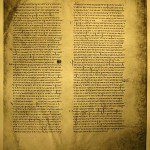
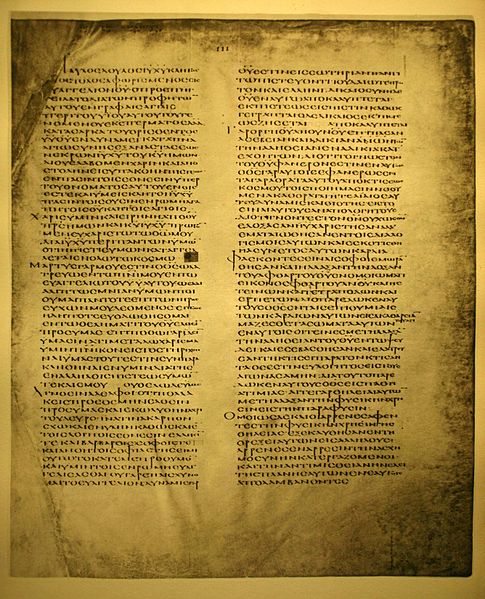



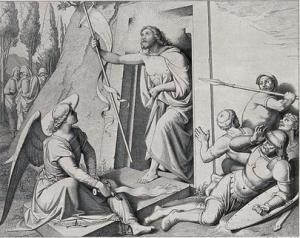



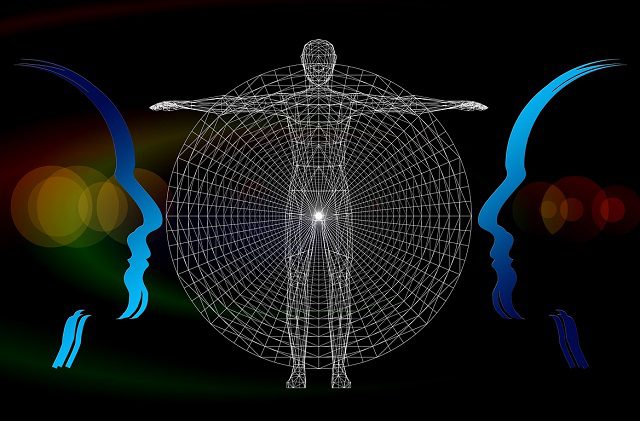





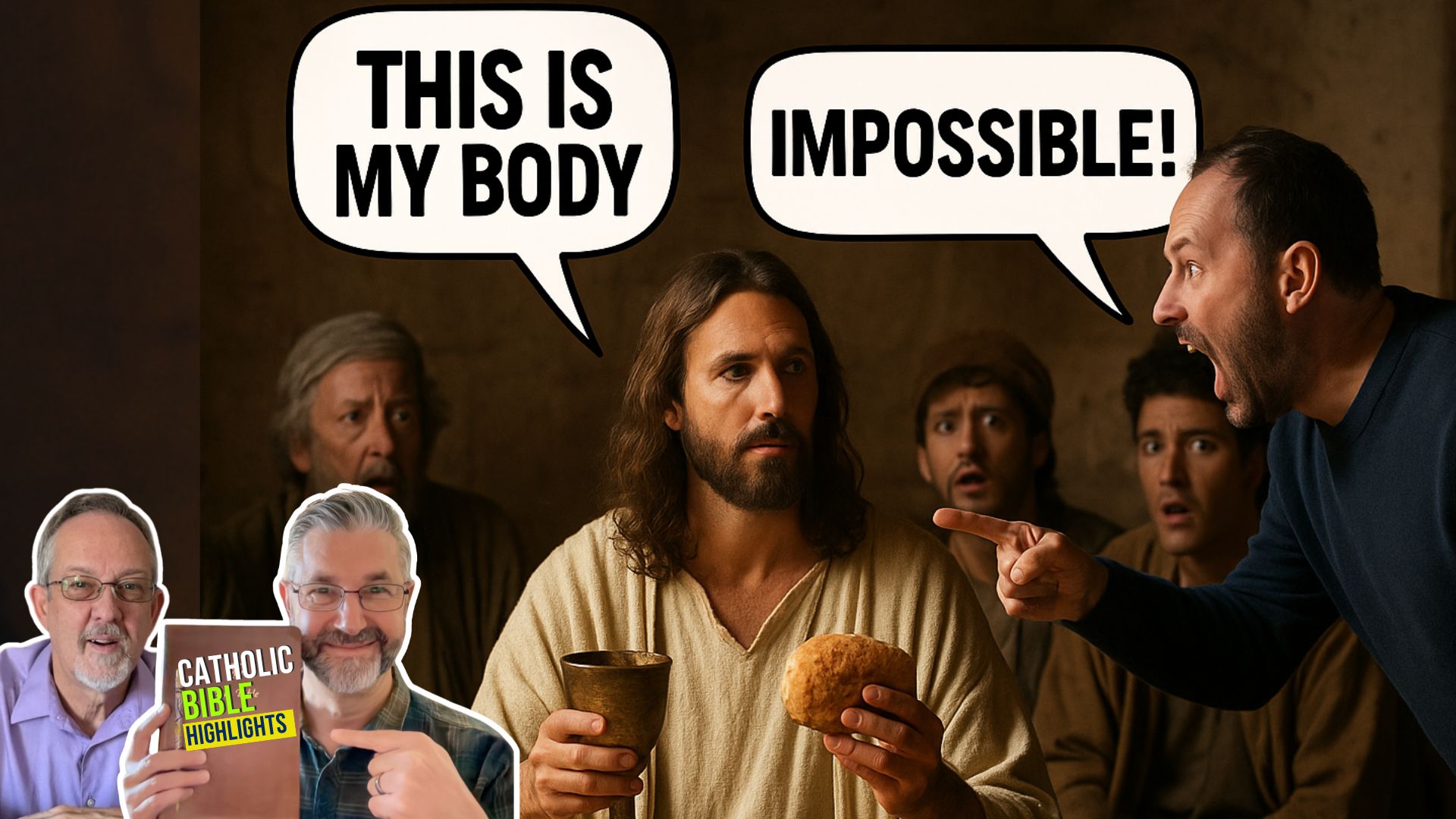
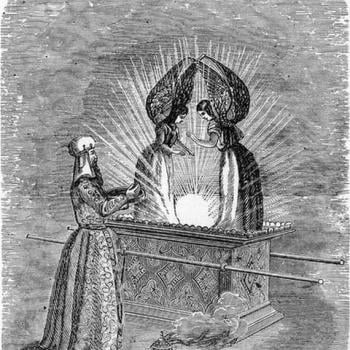
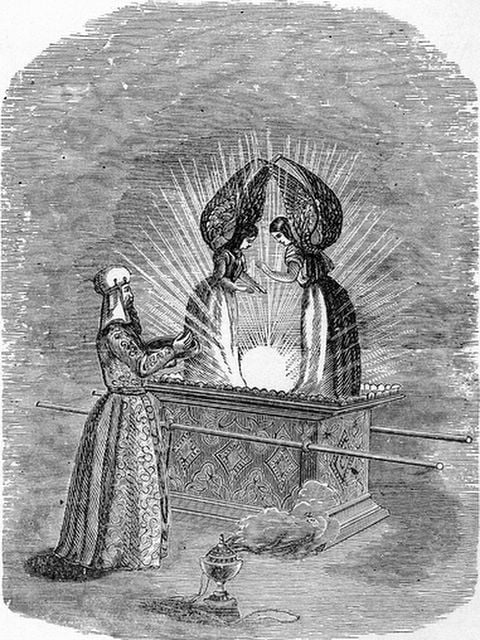






This text of Scripture [2 Tim 3:16-17] teaches the Bible is sufficient to equip the man of God, and sufficient to bring a person to salvation. Cardinal John Henry Newman is attacking a “straw man” and himself asserting a false claim. This is an example of the heresy Paul warned us against (Ac 20:29, 30). The Church is not our teacher: the Bible is. That is not to say that a church may not teach about Jesus Christ, for genuine churches focus upon the balance of truth given us in the New Testament and Scripture as a whole, but we are to test the truthfulness of all teaching by checking it against what is written in the Bible. Cardinal Newman further states: “It is quite evident that this passage furnishes no argument whatever that the sacred Scripture, without Tradition, is the sole rule of faith; for, although sacred Scripture is profitable for these four ends, still IT IS NOT SAID TO BE SUFFICIENT.” (Newman, Inspiration, p. 131).